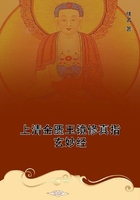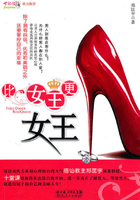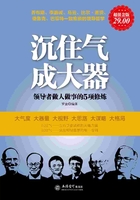"She came many a time to our house after she left off living with us. Last Sunday se'nnight--no! it was this very last Sunday, she came to drink a cup of tea with Mary; and that was the last time we set eyes on her." "Was she any ways different in her manner?" asked Wilson. "Well, I don't know. I have thought several times since, that she was a bit quieter, and more womanly-like; more gentle, and more blushing, and not so riotous and noisy. She comes in, towards four o'clock, when afternoon church was loosing, and she goes and hangs her bonnet up on the old nail we used to call hers, while she lived with us. I remember thinking what a pretty lass she was, as she sat on a low stool by Mary, who was rocking herself, and in rather a poor way. She laughed and cried by turns, but all so softly and gently, like a child, that I couldn't find in my heart to scold her, especially as Mary was fretting already. One thing I do remember I did say, and pretty sharply too. She took our little Mary by the waist, and "Thou must leaving off calling her 'little' Mary, she's growing up into as fine a lass as one can see on a summer's day; more of her mother's stock than thine," interrupted Wilson. "Well, well, I call her 'little,' because her mother's name is Mary. But, as I was saying, she takes Mary in a coaxing sort of way, and 'Mary,' says she, 'what should you think if I sent for you some day and made a lady of you!' So I could not stand such talk as that to my girl, and I said, 'Thou'd best not put that nonsense i' th' girl's head I can tell thee I'd rather see her earning her bread by the sweat of her brow, as the Bible tells her she should do, aye, though she never got butter to her bread, than be like a do-nothing lady, worrying shopmen all morning, and screeching at her pianny all afternoon, and going to bed without having done a good turn to any one of God's creatures but herself.'" "Thou never could abide the gentlefolk," said Wilson, half amused at his friend's vehemence. "And what good have they ever done me that I should like them?" asked Barton, the latent fire lighting up his eye: and bursting forth, he continued, 'If I am sick, do they come and nurse me? If my child lies dying (as poor Tom lay, with his white wan lips quivering, for want of better food than I could give him), does the rich man bring the wine or broth that might save his life? If I am out of work for weeks in the bad times, and winter comes, with black frost, and keen east wind, and there is no coal for the grate, and no clothes for the bed, and the thin "ones are seen through the ragged clothes, does the rich man share his plenty with me, as he ought to do, if his religion wasn't a humbug? When I lie on my death-bed, and Mary (bless her) stands fretting, as I know she will fret," and here his voice faltered a little, "will a rich lady come and take her to her own home if need be, till she can look round, and see what best to do? No, I tell you, it's the poor, and the poor only, as does such things for the poor. Don't think to come over me with th' old tale that the rich know nothing of the trials of the poor; I say, if they don't know, they ought to know. We're their slaves as long as we can work; we pile up their fortunes with the sweat of our brows, and yet we are to live as separate as if we were in two worlds; ay, as separate as Dives and Lazarus, with a great gulf betwixt us: but I know who was best off then," and he wound up his speech with a low chuckle that had no mirth in it. "Well, neighbour," said Wilson, "all that may be very true, but what I want to know now is about Esther--when did you last hear of her?" "Why, she took leave of us that Sunday night in a very loving way, kissing both wife Mary, and daughter Mary (if I must not call her 'little'), and shaking hands with me; but all in a cheerful sort of manner, so we thought nothing about her kisses and shakes. But on Wednesday night comes Mrs Bradshaw's son with Esther's box, and presently Mrs Bradshaw follows with the key; and when we began to talk, we found Esther told her she was coming back to live with us, and would pay her week's money for not giving notice; and on Tuesday night she carried off a little bundle (her best clothes were on her back, as I said before), and told Mrs Bradshaw not to hurry herself about the big box, but bring it when she had time. So, of course, she thought she should find Esther with us; and when she told her story, my missus set up such a screech, and fell down in a dead swoon. Mary ran up with water for her mother, and I thought so much about my wife, I did not seem to care at all for Esther. But the next day I asked all the neighbours (both our own and Bradshaw's), and they'd none of 'em heard or seen nothing of her. I even went to a policeman, a good enough sort of a man, but a fellow I'd never spoken to before because of his livery, and I asks him if his 'cuteness could find any thing out for us. So I believe he asks other policemen; and one on 'em had seen a wench, like our Esther, walking very quickly with a bundle under her arm, on Tuesday night, toward eight o'clock, and get into a hackney coach, near Hulme Church, and we don't know 'th' number, and can't trace it no further. I'm sorry enough for the girl, for bad's come over her, one way or another, but I'm sorrier for my wife. She loved her next to me and Mary, and she's never been the same body since poor Tom's death. However, let's go back to them; your old woman may have done her good." As they walked homewards with a brisker pace, Wilson expressed a wish that they still were the near neighbours they once had been. "Still our Alice lives in the cellar under No. 14, in Barber Street, and if you'd only speak the word she'd be with you in five minutes to keep your wife company when she's lonesome. Though I'm Alice's brother, and perhaps ought not to say it, I will say there's none more ready to help with heart or hand than she is. Though she may have done a hard day's wash, there's not a child ill within the street but Alice goes to offer to sit up, and does sit up too, though may be she's to be at her work by six next morning." "She's a poor woman, and can feel for the poor, Wilson," was Barton's reply; and then he added, "Thank you kindly for your offer, and mayhap I may trouble her to be a bit with my wife, for while I'm at work, and Mary's at school, I know she frets above a bit. See, there's Mary!" and the father's eye brightened, as in the distance, among a group of girls, he spied his only daughter, a bonny lass of thirteen or so, who came bounding along to meet and to greet her father, in a manner that showed that the stern-looking man had a tender nature within. The two men had crossed the last stile, while Mary loitered behind to gather some buds of the coming hawthorn, when an overgrown lad came past her, and snatched a kiss, exclaiming, "
同类推荐
热门推荐
女帝她只爱打天下
星际女战神穿越异世,遭遇灭门。女扮男装,扛起将军府的大梁。在这个崇尚武力的世界,宋谣表示,没有一顿毒打解决不了的事情。如果有,那就打两顿。全国弱鸡又怎么样,她有潜能药水,分分钟堆出一支修士大军,教周边几国做人。女人被迫害被歧视?呵呵,她就非要组建一支女子军,让他们感受一下被女人支配的恐惧。……他以病弱之躯,荣登君位。世人都以为他温柔宽容,软弱可欺。只有宋谣知晓他冷心冷情,视人命如草芥,待万物如玩物。这样的人,想和她谈恋爱?宋谣表示不想没事找虐,你他丫坑我的还少?谈恋爱是不可能的,这辈子都不可能谈恋爱,她的眼里只有天下!只有星辰大海!【暴脾气霸道女主x病秧子虚伪男主】【嗯,男主就是个蛇精病,作天作地作死作媳妇】沉住气,成大器:领导者做人做事的5项修炼
“沉住气,成大器”,这句话体现了中国人特有的聪明。它并非是老于世故、老谋深算者的处世哲学,而是对任何普通人尤其是身处要职的领导者都适用的生存智慧,是现代生活在人性丛林中的人必须遵守的法则。《沉住气·成大器:领导者做人做事的5项修炼》围绕这个主题,提炼出成功的领导者做人做事的5项修炼,比如行为得体,言谈到位,处理各方面的关系得心应手等,赢得了人心便赢得了一切。















